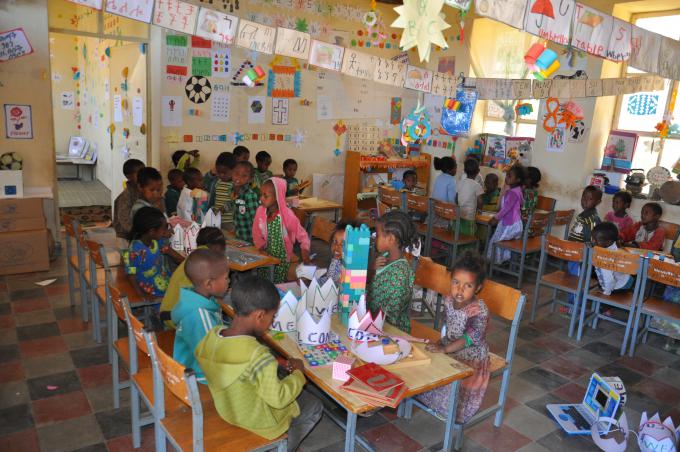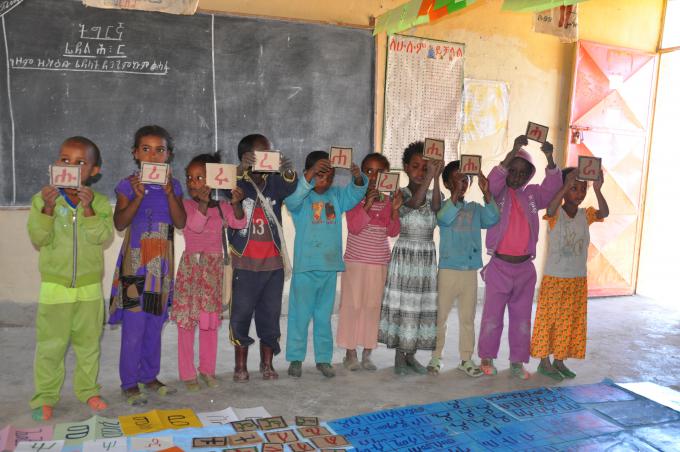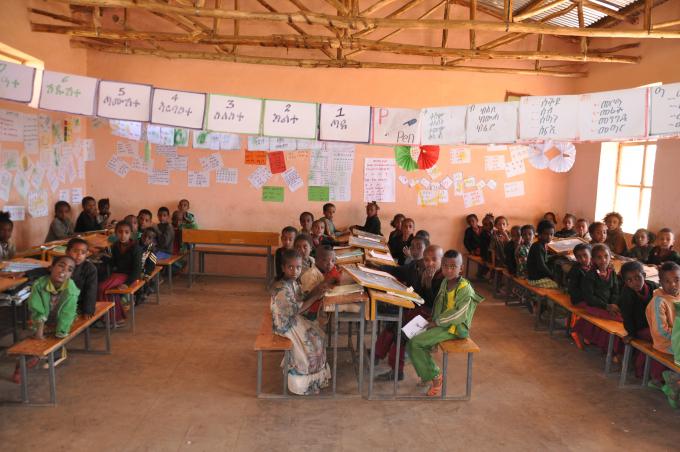Sponsorship program organizes program learning event and school visit
Save the Children in Ethiopia's Sponsorship Program organized learning workshop and school visit from 5 - 7, December 2016 in Mekelle city, Tigray Regional State. The Sponsorship Program in South Eastern Tigray will come to an end in December 2016. The learning workshop and the visit is part of the program close out process.
Representatives of the regional government bureaus and Save the Children’s senior management team visited schools supported by the Sponsorship Program around Mekelle city. The visiting team later conferred on the lessons learnt, handover process and the program sustainability.
The Sponsorship program gave certificates and prizes to participants in recognition of their contribution in implementing the Program. The Sponsorship-programming in South Eastern Tigray was started in Enderta Woreda in 2006. The program expanded to Hintalo Wojerat Woreda. Later, it started operating in Raya Azebo and Deguatemben Woredas in 2013.
The Sponsorship program was implemented in three core program in South Eastern Tigray: Early Childhood Care and Development (ECCD), Basic Education (BE) and School Health and Nutrition (SHN) in close collaboration with the regional and district government offices. READ MORE HERE
The program supported 70 primary schools in South Eastern Tigray benefiting more than 50,000 children (50% girls) every year through building 270 new class rooms; supplying 51,408 supplementary reading materials and 10,300 slates; providing training to teachers, parents and government officials to enhance the teaching and learning process.
The program also built 20 ECCD centers and 20 O-classes benefiting more than 3,300 children (51% girls) every year in collaboration with the community. It trained 218 ECCD and O-class teachers on Early Literacy Math and child development as well as 1,854 parents on child care and development.
107 primary schools received school health and nutrition support which benefitted 180,000 children (50% girls) every year through constructing latrines, water schemes and distributing first aid kits and reusable sanitary pads.
 Ethiopia
Ethiopia 

